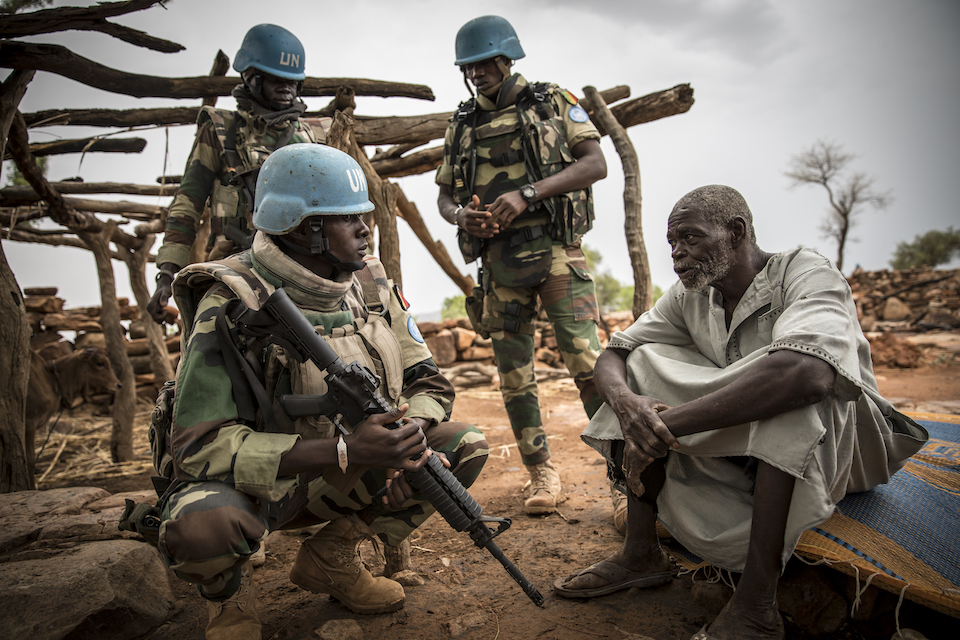Ensuring human rights are at the core of peacekeeping
Statement by Lord (Tariq) Ahmad of Wimbledon at the Security Council meeting on United Nations peacekeeping operations: Peace operations and human rights

Thank you Madam President for convening today’s important debate. I am also grateful to High Commissioner Bachelet, Special Representative Shearer, and Mr Kitengi for their insightful briefing.
Their insight from the ground reminds us there can be no lasting peace, nor sustainable development, without respect for human rights and the rule of law.
This is an often-repeated refrain in this Council, and a concept we each endorsed in the Declaration of Shared Commitments on UN Peacekeeping Operations. It is a vision that we all too often fail to realise.
And I want to turn on the situation in Mali as an example. Through this Council, we have mandated MINUSMA to complete three vital human rights functions.
Firstly, to act to prevent serious human rights violations and attacks on civilians, in line with the UN Protection of Civilians policy.
Second, to monitor, investigate and report abuses or violations.
And thirdly, and importantly, to support Malian efforts to protect and promote human rights and, importantly, fight impunity.
This role is fundamental to prevent a further erosion of trust between the states and the people and thereby help to ultimately stabilise the country.
The integrated response at the heart of the mission’s adaptation plan, with better coordination between military, police and civilian components, should enable MINUSMA to respond more effectively to reported abuses. It is needed.
Despite our best efforts, reporting from High Commissioner Bachelet’s office and the UN Peacekeeping mission, they continue to highlight persistent human rights abuses and violations in Mali and indeed across the Sahel. MINUSMA, like any peace operation around the world, can only ever be part of the solution. It is incumbent on all national governments to protect and promote human rights, investigate allegations of violations and abuses openly and transparently, and hold those responsible to account. When national governments are unwilling to act and the international community can, we should always be prepared to deploy the full range of tools at our disposal and to hold perpetrators to account, including the use of sanctions.
Strong coordination and collaboration between all relevant parts of the United Nations machine, the Malian government should enable them to strengthen their capacity to both protect and promote human rights and, importantly, the rule of law.
Madam President, UN peace operations have an obligation not only to monitor human rights violations and abuses, but also to ensure their support to other security forces is human rights compliant. The UN’s human rights due diligence policy sets this out very clearly.
It is also an incentive to those security forces to deploy and strengthen their own safeguards. I encourage our missions to show more clearly how they are applying it. Every member of a mission’s personnel, from the special representatives and force commanders to contingent troops, should understand their role and responsibilities to both protect and promote human rights. We must ensure missions have the specialist capabilities they need to respond effectively to specific human rights challenges in the field.
The devastating impact of conflict-related sexual violence in South Sudan, where nearly a quarter of the reported cases involve children, is an unwelcome reminder of the abuses that take place and why we must do better and do more. Reporting tells us that survivors continue to struggle. They continue to struggle to access medical and mental healthcare. Although I am encouraged that the government of South Sudan has acknowledged these concerns and has expressed a willingness to work together with UNMISS to combat sexual and gender based violence.
Let me assure all that the United Kingdom is absolutely committed to supporting survivors, including children born of conflict-related sexual violence, and to holding all perpetrators to account. And we call upon all Council members to support the inclusion of vital human rights experts in our missions, including more gender, child protection and, importantly, women’s protection advisors.
To conclude, Madam President, human rights are all about safeguarding the dignity and unleashing the true potential of each and every person around the globe. That is why states that fail to protect and promote human rights are less prosperous, they are less stable and less able to meet the demands of their people and more likely to remain on the agenda of this Council. Human rights intertwine with all aspects of UN peace operations. Therefore, the focus of this Council must be unflinching. We must promote, protect, strengthen and realise human rights wherever we work. It’s in our interests, it’s in all interests, in the interests of all people.
Thank you, Madam President.